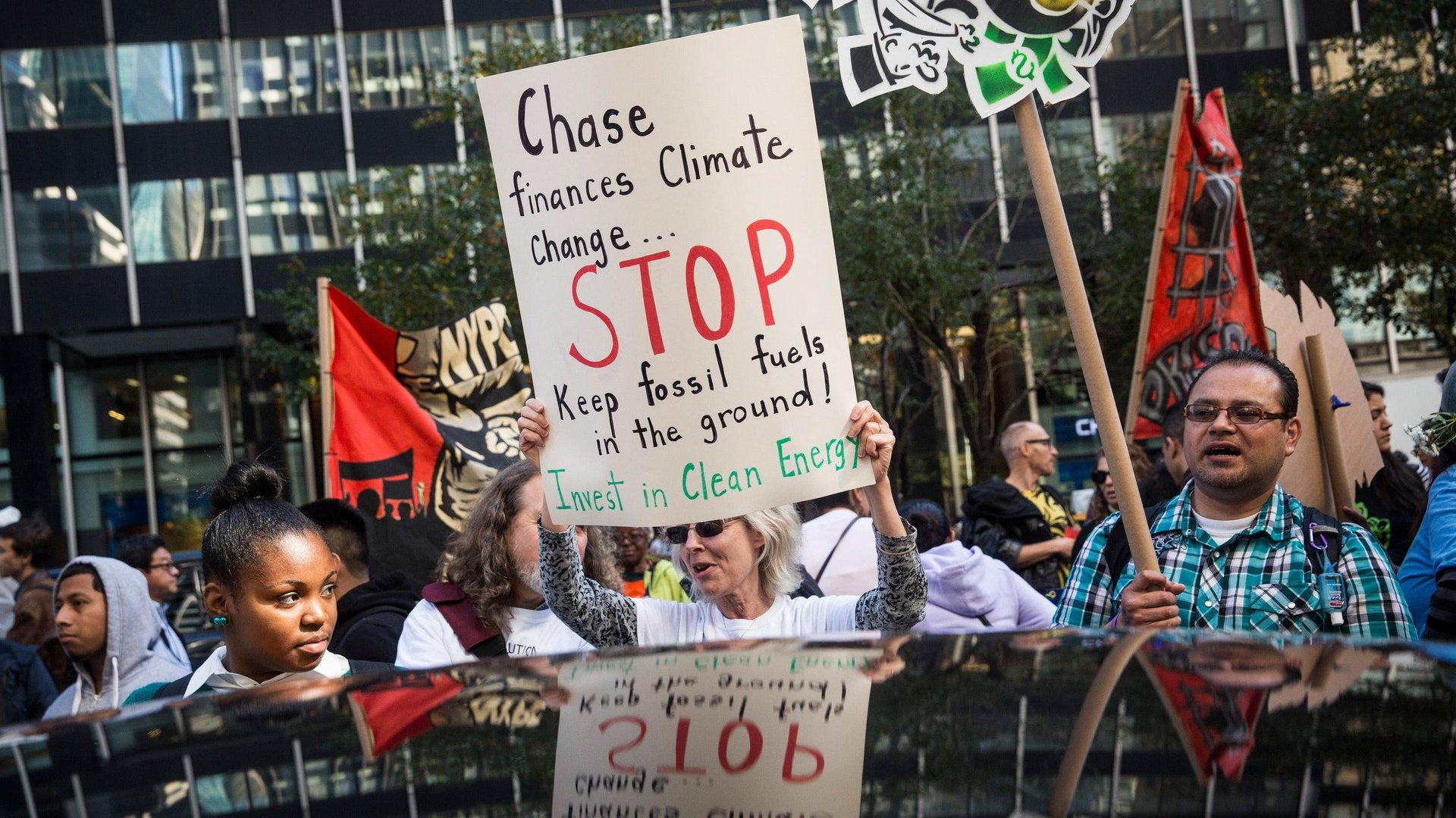A new AI asset management tool is running into an old problem: poor data
Arabesque AI is building asset management tools to help automate the tasks of the financial advisor

Compiling a green, clean investment portfolio isn’t easy—even for artificial intelligence.
Suggested Reading
Aether, an AI platform for asset managers, was launched by the London-based Arabesque AI in 2019. Which means that it has been learning more and more over the past four years, in its bid to analyze and predict the behavior of financial markets. At the moment, it generates estimates of a stock’s performance over differing time horizons for more than 25,000 companies. “Everything that is investible, everything that is liquid enough to be investible—we can make a forecast out of it,” Nikolaos Kaplis, Arabesque’s chief technology officer, told Quartz.
Related Content
Aether pulls financial data from sources like Bloomberg or FactSet: stock prices, volatility, exchange rates, and commodity prices. It also uses sustainability metrics from Arabesque’s partner, ESG Book. But it’s important to feed AI models with quality data, and that isn’t so easy to find when it comes to more “exotic” metrics, Kaplis said. He offered the example of how companies calculate carbon emissions levels in their own, distinct ways, forcing Arabesque to redo calculations to standardize their data. “We have to be very careful,” he said.
Asset managers want AI to do their grunt work
An AI tool gives wealth managers a “condensed, executive summary” of the data they need to take decisions, Kaplis said. Their repetitive tasks, such as monitoring every item of news or every data point, get automated. But in the final analysis, Kaplis added, a tool like Aether can only offer its predictions and analyses. The ultimate responsibility to buy or sell any instruments lies with the human—the asset manager.
Arabesque, which is both an investment advisory and a tech company, built Aether to take questions. Already, financial advisors can ask Aether what kind of data contributes to its predictions. As the AI gets more nuanced, Kaplis said, it will be able to tell users which data it paid the most attention to in generating its forecast.
Which is just as well, because Arabesque is betting that one of its target demographics—younger investors—will have lots of questions to ask, particularly about the emissions, sustainability, and diversity of companies. By 2030, roughly $68 trillion in wealth will transfer from baby boomers to millennials, according to a PwC report. Younger investors also more actively question the transparency of big financial institutions and the integrity of traditional finance markets, according to the market research firm eMarketer.
The SEC is watching AI investment tools
Arabesque’s Aether is one of many tools that may be described as using AI to help with investing strategies. This category of products has attracted the attention of the US Securities and Exchange Commission (SEC). In a July press release, the SEC proposed new rules for AI-driven investment engines. The use of such models was accelerating, the SEC warned, adding: “Any resulting conflicts of interest could cause harm to investors in a more pronounced fashion and on a broader scale than previously possible.”
Another challenge for companies like Arabesque is the fact that financial advisors are slow to change and set in their habits. But Kaplis suspects that, as new generations of investors come online, change will be swift and abrupt.
“There’s a very sharp view in how [younger investors] view investment... Everyone still cares about the returns, no question about that,” he said. “But people have more complex requirements these days, and this cannot be satisfied by a single fund. As this pressure accumulates, the adoption will happen faster.”